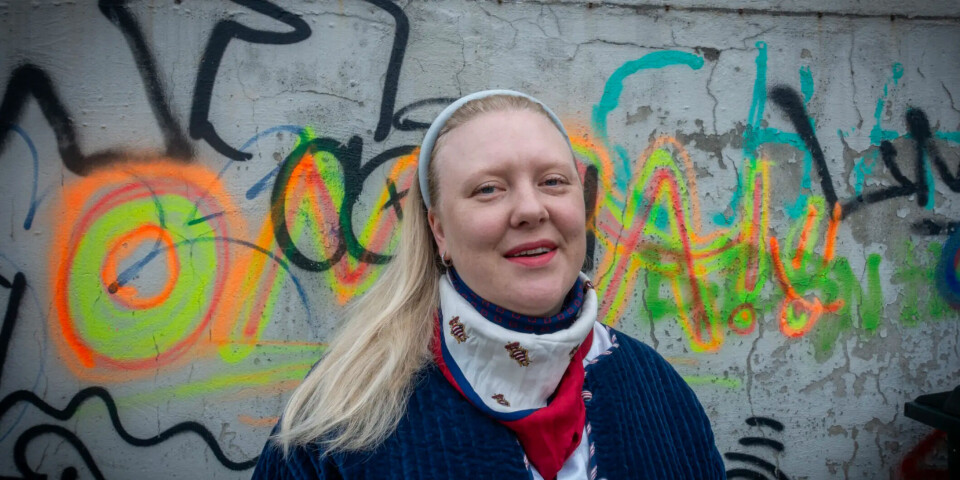THIS CONTENT IS BROUGHT TO YOU BY NTNU Norwegian University of Science and Technology - read more
Researcher: Geography is a subject in crisis – worldwide
There aren't enough qualified teachers and it loses out to other subjects in school, a new study shows. In many countries, important aspects are left out of the curricula.

“Alarm bells should be ringing, both in the field and among teachers in schools. The development we're seeing in geography as a subject is critical. This failure affects the students' ability to understand how things are connected in a troubled and confusing world,” says Hilde Storrøsæter.
She is a geographer and assistant professor at NTNU's
Department of Teacher Education.
Together with colleagues in nine countries, she has analysed the national curricula for geography in upper secondary school.
Curricula skip over the bedrock
The researchers examined what the plans say about what is taught, and how it is to be taught.
Despite the fact that geographical thinking is the foundation of the subject, none of the nine countries' curricula have described it clearly.
“Geographical thinking is a way of understanding and interpreting the world through geographical knowledge,” the researcher explains.
It's about understanding challenges such as climate change, globalisation, and resource management. And about seeing connections between places, people, the environment, and development.
The researchers also found that other, very basic parts of the subject were hardly emphasised in the curricula.
The researchers found critical shortcomings
“We see these as critical shortcomings,” says Storrøsæter.
The nine countries studied were Australia, China, the Czech Republic, Denmark, France, Norway, Slovakia, South Africa, and the USA.
The researcher stresses that it's not a goal that all countries should end up with the same curricula.
"But we should have some common ambitions. Such as connecting geography to major topics like sustainability, community development, and citizenship. To develop thinkers, not just fact-checkers and crammers,” she adds.
Sustainability, nature loss, and choices
“Geography is the only school subject that connects topics within nature and society. It builds a bridge between us humans and the world we have created and live in,” says Storrøsæter.
She points out that the tension between nature and society is becoming more and more evident around us. It's particularly visible in issues of sustainability and development, and the loss of nature in favour of roads.
This also applied to choices that took everyone by surprise: the UK's Brexit from the EU and Donald Trump's first victory in the US presidential election.
Buying water in plastic bottles
If students are to be able to assess the consequences of their own choices, such as what they eat, how they travel, or where they live, they need to master future-oriented and geographical thinking.
The ability to analyse a world situation, or local situations such as oil exploration off the coast of Lofoten, gives students valuable insight and understanding.
“It's about connecting one's own actions to global contexts and imagining different futures. Take plastic pollution. What do you actually pay for when you buy bottled water? After all, clean water is free, so what you're really paying for is the production of plastic bottles,” says Storrøsæter.
The teachers' toolbox
Curricula are the toolbox teachers bring with them into classrooms. There they are meant to ensure that students practice their ability to think, understand, interpret, and cope with challenges in everyday life – now and in the future.
Often this involves complicated connections, like climate change.
“To understand climate change, pupils must be able to see the connection between local floods and global emission patterns. This doesn't only require knowledge of weather and climate. It requires the ability to see the big picture and chains of causes that cut across countries and scales,” says Storrøsæter.
Locked in France, wide open in Norway
The study is the first of its kind. It was done because geography as a subject is under pressure in many countries.
Comparison was not a goal of the study, but some differences are clear.
France's curriculum is concrete and inflexible. There, the subject is combined with history, with many more history teachers than geography teachers teaching it.
In Norway, geography is a social science subject. We lack teachers. Students can go through all of school without meeting a single teacher with special expertise in geography.
The subject has been cut down to 90 minutes a week in Norwegian upper secondary schools. New students arrive with increasingly weaker prior knowledge.
Those who educate geography teachers see that the subject is becoming less and less important.
“And when the teachers who're going to interpret the open Norwegian curriculum don't have enough academic ballast, their teaching is further weakened,” says Storrøsæter.
Not just crammers
The researcher is worried about the subject, but also hopeful.
“I'm concerned because teacher shortages, lack of requirements for teacher competence, and weak subject curricula result in low quality of pupils' learning. Hopeful because both research and focus on geographical thinking are expanding, and can be used for improvements,” she says.
Reference:
Bendl et al. An international perspective on geography curricula: paving a way forward for geographical thinking, Geographical and Environmental Education, vol. 34, 2025. DOI: 10.1080/10382046.2025.2513535
More content from NTNU:
-
Why is nothing being done about the destruction of nature?“We hand over the data, but then it stops there"
-
Researchers now know more about why quick clay is so unstable
-
Many mothers do not show up for postnatal check-ups
-
This woman's grave from the Viking Age excites archaeologists
-
The EU recommended a new method for making smoked salmon. But what did Norwegians think about this?
-
Ragnhild is the first to receive new cancer treatment: "I hope I can live a little longer"





































